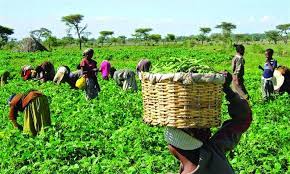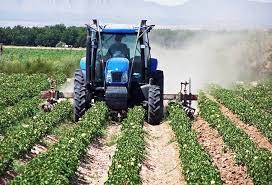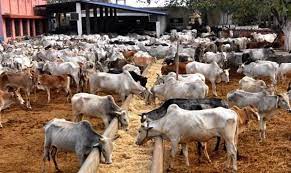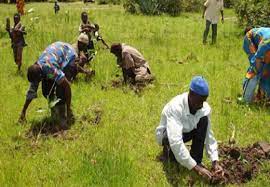The National Agricultural Seed Council (NASC) has stated that it is re-strategising to ensure the required seed needed to address food production in Nigeria is available.
NASC Acting Director General, Dr. Ishiaku Khalid, gave the assurance recently at the just concluded 6th edition Of SeedConnect Africa Conference And Expo in Abuja.
This is even as he also disclosed that the Council will convene a national seed conference that will bring stakeholders to plan for the 2024 planting season and how to achieve the national seed requirement.
He said the 2023 SeedConnect is dedicated to the Global declaration of Food Emergency and the role of Africa’s Seed Sector in creating a sustainable food system to ensure access to nutritious and affordable food both now, and in the future.
He added that ‘’In terms of inclusivity, NASC is leveraging on the use of Licensed Seed inspectors to achieve low level certification in an efficient manner’’.
“The target of Mr. President in making quality seed available to farmers is a drive the Seed Council is following through by deploying all arsenals for efficient seed certification, surveillance and mopping out adulterated seeds. Not leaving out building of industry capacity especially with the NASC membership of the OECD’’.
In his keynote address, the Minister of State for Agriculture and Food Security, Senator Aliyu Sabi Abdullahi, called for the restructuring of the Nigeria seed industry to ensure that only serious companies are allowed to function within the system.
He lamented the state of operations of the seed companies while calling for a review, as according to him, the companies are not operating optimally and efficiently.
As part of efforts to enable farmers access improved seed in their domain, Abdullahi proposed a developed community seed system noting that it is the panacea to the challenge of acceptability as it will give opportunity to harness the “unseeded” population by creating a legal framework for community seed producers who can easily reach the farmers in the hunter parts of the country.
“We have 440 seed companies as of today with 110,000Mt of seed. This turns out to be a paltry average of 250Mt. This means the seed industry is not operating optimally and efficiently. There has to be concerted efforts to re-strategise the operating principles of the industry players to make them respond to global dictates in terms of capacity, operations and business structure. I will want to suggest a restructuring of the seed industry to ensure that only serious companies are allowed to function within the system.
“In terms of finance which is very critical, the take-off of the National Agricultural Development Fund to support production, critical infrastructures and provide
financial leverage for farmers will also be focused on in the short term. This will also be supported by reforms in the Bank of Agriculture and Nigeria Agricultural Insurance Corporation to meet the needs of its clientele using Digital solutions,” he said.
In his remarks, the Netherland’s Ambassador to Nigeria, Wouter Plomp, stated that “the Netherlands – Nigeria Seed Partnership – a model of collaboration built on knowledge exchange and mutuality, has been instrumental in advancing Nigeria’s seed sector, fostering the exchange of expertise, technology and best practices.”




